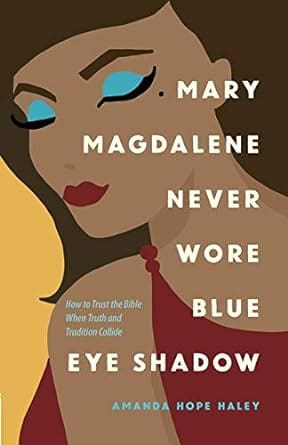- Home
- Spiritual Life
- George Washington Was No Cherry Picker

George Washington Was No Cherry Picker
Cherry blossoms may bloom each spring in Washington, DC, but George Washington was no cherry picker—and neither should we be when it comes to Scripture. This article contrasts the myth of Washington’s honesty with the modern temptation to “cherry-pick” Bible verses for personal agendas. It challenges readers to move beyond proof-texting and embrace the full, truthful context of God’s Word.
Washington, DC, is never more beautiful than during the annual National Cherry Blossom Festival. In 1912, Mayor Yukio Ozaki of Tokyo gave three thousand ornamental (nonfruiting) cherry trees to Washington to signify enduring friendship between our nations, and the nations have swapped cuttings back and forth ever since to keep the original trees’ lineages alive in both nations.¹ The one-hundred-year-long relationship contrasts the meaning of the cherry blossoms themselves, which in Japan represent the transience of life. The ornamental cherry tree has a brief but brilliant blooming season, ended as the wind whisks the petals away. Life is beautiful but fleeting.
I incorrectly thought that Japan gave Washington, DC, all those cherry trees as a nod to the fable of George Washington cutting down his father’s favorite cherry tree when he was six years old:
When George … was about six years old, he was made the wealthy master of a hatchet! of which, like most little boys, he was immoderately fond, and was constantly going about chopping every thing that came in his way. One day, in the garden, where he often amused himself hacking his mother’s pea-sticks, he unluckily tried the edge of his hatchet on the body of a beautiful young English cherry-tree, which he barked so terribly, that I don’t believe the tree ever got the better of it. The next morning the old gentleman finding out what had befallen his tree, which, by the way, was a great favourite, came into the house, and with much warmth asked for the mischevious author, declaring at the same time, that he would not have taken five guineas for his tree. Nobody could tell him any thing about it. Presently George and his hatchet made their appearance. George, said his father, do you know who killed that beautiful little cherry-tree yonder in the garden? This was a tough question; and George staggered under it for a moment; but quickly recovered himself: and looking at his father, with the sweet face of youth brightened with the inexpressible charm of all-conquering truth, he bravely cried out, “I can’t tell a lie, Pa; you know I can’t tell a lie. I did cut it with my hatchet.”–Run to my arms, you dearest boy, cried his father in transports, run to my arms; glad am I, George, that you killed my tree; for you have paid me for it a thousand fold. Such an act of heroism in my son, is more worth than a thousand trees, though blossomed with silver, and their fruits of purest gold.²
Everyone knows this is just an anecdote meant to impress upon us the importance of truth. George Washington, father of our nation, was always honest with his own father, even when he thought he would be punished for killing what would have been a fruited cherry tree. I can only speculate as to what made it his father’s favorite; maybe it provided the biggest and tastiest cherries, or maybe it was a lovely shade tree in his garden. If it had been a black cherry tree, a variety that grows wild in Virginia, at least Mr. Washington could have made some nice heirloom-quality furniture from its wood after the fictional tragedy.
There’s a lot to love about the cherry tree: beautiful, nourishing, strong, metaphorical, even truthful. Not unlike our Bible.
Don’t Pick, Prune, or Chop Down the Bible

As we have learned, the Bible is an anthology composed of many ancient texts written by dozens of authors over hundreds of years. All biblical stories and voices come together in a singular portrait of God and His desire to reconcile humanity to Himself. When we study and teach Scripture, each story and every voice need to be considered to extract a true interpretation of God’s Word.
There are two types of preaching: proof-texting and exegesis. Whenever a preacher gets on stage or behind a pulpit and says something like, “These are the five ways the Bible tells us to do X,” then you know you’re about to hear some proof-texting. That person looked at the world and wondered what his or her listeners needed to hear to feel better about life. Then he went to the Bible and found passages or verses that agreed with whatever five points he wanted to make. To say this is lazy theology is an understatement, but it is probably the most popular form of Sunday-morning lecture. Sadly, many people prefer to hear only that the Bible agrees with the ways they are behaving or believing as opposed to hear just God’s truth. They cherry-pick the parts of Scripture they like while undercutting God’s Word as a whole.
The Method
One of the first lessons I was taught as a budding archaeologist was, “If you look for it, then you’ll find it.” This was in reference to excavations (and will be probed in chapter 4), but it is true for the Bible as well. If you want to “make” God validate you, then you can do it.
Let’s pretend that I just found out I need to teach at a power-player women’s conference in two days. It’s a strange conference—one that peddles in Christian untruth—and they want me to explain why marriage is wrong. If, hypothetically, I were to accept the job (which I would never, ever do because this so obviously disagrees with God’s first command in Genesis 1:28 that humanity be fruitful and multiply), then I would proof-text Scripture to make it happen. My preparation would look something like this:
Step 1: Find a nonbiblical story to introduce the topic and engage the listener.
Christina had spent the year since she had graduated from college planning her wedding. She had been hired as a congressional intern in Washington, DC, and she and her college sweetheart had decided a spring wedding under the Japanese cherry trees would be the perfect way to start their lives as a future Washington power-couple. Family and friends flew in from all over the nation to watch Christina in her blush-pink gown vow to love and honor her husband. Everything was picture-perfect that day.
Before the next spring, Christina was a mess. She was always entertaining her in-laws or cleaning for her in-laws or cooking for her in-laws. Laundry never seemed to be done, and she’d found herself working fewer hours just to keep up with personal responsibilities. She had been passed over for a promotion, and now her husband wanted to add a baby to the chaos. Married life was no bowl full of cherries. She’d lost her ambitions, her successfulness, and herself—all because she’d tied herself to one good-looking guy.
Step 2: Break the topic down into three-to-five points.
Christina’s story exemplifies the three reasons the Bible doesn’t want women to marry:
- The domestic responsibilities associated with marriage are all-consuming.
- Marriage distracts women from reaching their God-given potential.
- Marriage makes women shallow and sex-addicted.
Step 3: Cherry-pick Bible verses that support the points.
Let’s look at the verses that tell us why women shouldn’t marry:
- Proverbs 31:10: “Who can find a virtuous wife? / For her worth is far above rubies …” This list of wives’ responsibilities is so long it must be a sarcastic way of reminding women they don’t want those responsibilities.
- Matthew 19:12 (THE VOICE): “Others have renounced marriage for the sake of the kingdom of heaven. Anyone who can embrace that call should do so.” Women should model other single women who live happy, charitable lives.
- 1 Corinthians 7:34: “The unmarried woman cares about the things of the Lord, that she may be holy both in body and spirit. But she who is married cares about the things of the world—how she may please her husband.” Wives get distracted by all the daily household and nightly sexual responsibilities. Those women can no longer love God.
This exaggerated little exercise was honestly painful to write because it is so disrespectful of Scripture. Because the verses are taken out of context—the contexts of the Bible as a whole, the books they are in, and in some cases the very sentences around them—the words can be used to justify just about any claim.
If women were to listen to a speech like the one outlined above and then decide not to marry—or worse, divorce—then they would be falling victim to false teaching and believing in false theology. Sadly, this has been happening to Christians since the very day the Christ was resurrected, as supposed believers doubted His return (1 Corinthians 15:12).
…
Excerpt taken from Mary Magdalene Never Wore Blue Eye Shadow by Amanda Hope Haley
Order your copy of Mary Magdalene Never Wore Blue Eye Shadow: How to Trust the Bible When Truth and Tradition Collide by Amanda Hope Haley
Trending Now
Sign up today for your Inspiration Today Daily Newsletter
Supercharge your faith and ignite your spirit. Find hope in God’s word. Receive your Inspiration Today newsletter now!
Amanda Hope Haley
Amanda Hope Haley is a lover of the Bible — its God, its words, and its history. She holds a master’s degree of theological studies in Hebrew Scripture and Interpretation from Harvard University, hosts The Red-Haired Archaeologist podcast, has ghostwritten for popular Christian authors, and contributed to The Voice Bible translation. Amanda and her husband, David, live in Tennessee with their always-entertaining basset hound, Copper. Learn more at amandahopehaley.com
Related Articles
February 27, 2026
Friendship with Jesus: Finding Joy in the Creator
True joy begins when we know Jesus not only as Savior, but as Creator—and learn to walk with Him in…
February 25, 2026
Finish Strong with a Kingdom Mindset
For if you keep silent at this time, relief and deliverance will rise for the Jews from another…
February 23, 2026
The Joy of Being His Workmanship
When life urges us to strive harder and do more, Scripture invites us to rest in a freeing truth:…
February 20, 2026
Stepping Out in Faith When God Calls You to the Impossible
Stepping out in faith often feels uncomfortable—especially when God calls you toward something that…
Next Steps To Strengthen Your Walk
Inspiration Today Newsletter
Supercharge your faith and ignite your spirit. Find hope in God’s word. Receive your Inspiration Today newsletter now!
Christian Articles
Find articles to strengthen your walk and grow your faith. We have a wide range of topics and authors for you.
Submit A Prayer Request
We are here for you. Simply click on the button below to reach us by form, email or phone. Together we will lift our hearts and voices with you in prayer.





